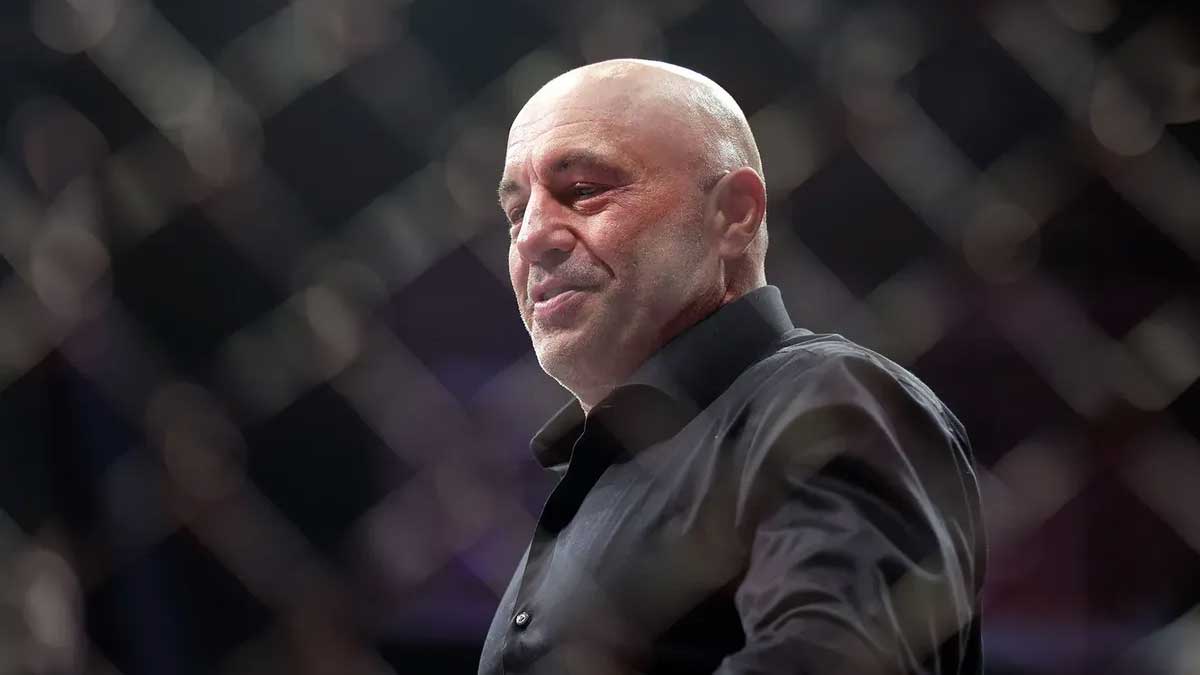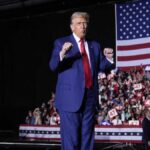- Home
- Billionaires
- Investing Newsletters
- 193CC 1000
- Article Layout 2
- Article Layout 3
- Article Layout 4
- Article Layout 5
- Article Layout 6
- Article Layout 7
- Article Layout 8
- Article Layout 9
- Article Layout 10
- Article Layout 11
- Article Layout 12
- Article Layout 13
- Article Layout 14
- Article Sidebar
- Post Format
- pages
- Archive Layouts
- Post Gallery
- Post Video Background
- Post Review
- Sponsored Post
- Leadership
- Business
- Money
- Small Business
- Innovation
- Shop
Recent Posts
Rogan Alleges YouTube Suppressed Trump Interview

In a recent episode of the “Joe Rogan Experience,” released on October 30, Joe Rogan claimed that his highly publicized interview with former President Donald Trump faced an “issue” that hindered its visibility on YouTube’s search function. Rogan, without providing any evidence, suggested that the video sharing platform intentionally suppressed the interview, a claim that has drawn significant attention and controversy.
During the episode, Rogan remarked on the peculiar circumstances surrounding the search results for his Trump interview, stating, “Something happened” with the visibility of the video on YouTube. He expressed frustration that the episode was not trending, declaring, “There’s no way it was a mistake; that’s too convenient,” and speculated it might have been the work of “some rogue engineer.” He further emphasized that platforms “can’t suppress sh*t anymore,” highlighting a growing concern about transparency in social media algorithms.
The controversy escalated when Elon Musk, the billionaire entrepreneur and owner of X (formerly Twitter), reportedly expressed his anger about the issue and contacted Spotify CEO Daniel Ek before sharing the interview on his own platform. Rogan had tweeted earlier that week about an “issue with searching for this episode on YouTube,” and he subsequently posted the full video on X to ensure it reached a wider audience.
Additionally, Rogan shared a video from David Heinemeier Hansson, CTO of software firm 37signals, which highlighted the anomalies in YouTube’s search results for the Trump interview. The video showcased how dozens of other videos appeared in searches related to the interview, prompting Hansson to question whether YouTube was actively trying to suppress it, calling it “beyond bonkers.” Many users on X echoed similar sentiments, reporting difficulties in locating the full interview on YouTube and noting that snippets of the discussion were more readily available than the complete video. Musk contributed to the conversation, suggesting that YouTube had encountered “technical difficulties.”
Despite the claims of suppression, no concrete evidence has surfaced to indicate that YouTube deliberately failed to display the interview. It remains accessible on the platform and appears in search results. A spokesperson for Google, YouTube’s parent company, addressed the issue late Monday, explaining that the video “didn’t appear prominently” for some searches on Monday but assured users that the problem had been “resolved.” The spokesperson did not specify the cause of the visibility issue, leaving many questions unanswered.
The interview itself, which first aired on October 25, has quickly become one of the most significant episodes in Rogan’s podcast history. It marked the first appearance of a former president on the show, a concept that Rogan had previously expressed reluctance about. Despite the technical glitches and subsequent uproar, the episode drew widespread interest and attention. Rogan’s team initially delisted the video from YouTube to address what he described as a “glitch” during the uploading process, clarifying later that there was no issue with YouTube censoring the Trump episode. However, the interview’s absence from some search results ignited a wave of speculation and criticism from both fans and detractors.
The Trump campaign saw the interview as a strategic opportunity to engage young male voters, especially in the face of expected strong turnout among women voters for Vice President Kamala Harris in the upcoming elections. Over the past year, Trump has participated in numerous podcasts targeting similar demographics, but Rogan’s platform, being the most-listened-to podcast on Spotify, provided a significant avenue for outreach. During the episode, Rogan and Trump discussed various topics, including election fraud, Trump’s policies during his presidency, and even the existence of aliens, further fueling the public’s interest.
As for the potential for a Kamala Harris interview, Rogan expressed hope for it to happen, stating that the Harris campaign had not ruled out the possibility. He revealed that the campaign had offered a date for an interview on October 29, but due to scheduling conflicts, Harris could not participate. Rogan faced criticism for his conditions regarding the interview, with some calling him a “diva,” but he remained firm in his stance.
In addition to the Trump interview, Rogan is set to release an interview with JD Vance, Trump’s former vice presidential pick, which was recorded on Wednesday and is expected to air Thursday. Vance has consistently aligned himself with Trump’s media appearances, making his upcoming interview highly anticipated.
The interview with Trump has garnered substantial viewership, achieving 41 million views on YouTube, marking it as Rogan’s second most-watched episode. When posted on X, it gained an additional 18.8 million views. This episode has surpassed many others in Rogan’s extensive catalog, with only one episode, featuring Bob Lazar and Jeremy Corbell, achieving more views at 61 million. The massive interest surrounding the Trump interview underscores the significant impact Rogan’s podcast has in today’s media landscape, particularly as it relates to political discourse and audience engagement.
Recent Posts
Categories
- 193cc Digital Assets2
- 5G1
- Aerospace & Defense46
- AI37
- Arts3
- Banking & Insurance11
- Big Data3
- Billionaires449
- Boats & Planes1
- Business328
- Careers13
- Cars & Bikes76
- CEO Network1
- CFO Network17
- CHRO Network1
- CIO Network1
- Cloud10
- CMO Network18
- Commercial Real Estate7
- Consultant1
- Consumer Tech180
- CxO1
- Cybersecurity68
- Dining1
- Diversity, Equity & Inclusion4
- Education7
- Energy8
- Enterprise Tech29
- Events11
- Fintech1
- Food & Drink2
- Franchises1
- Freelance1
- Future Of Work2
- Games141
- GIG1
- Healthcare78
- Hollywood & Entertainment186
- Houses1
- Innovation42
- Investing2
- Investing Newsletters4
- Leadership65
- Lifestyle11
- Manufacturing1
- Markets20
- Media193
- Mobile phone1
- Money13
- Personal Finance2
- Policy567
- Real Estate1
- Research6
- Retail1
- Retirement1
- Small Business1
- SportsMoney33
- Style & Beauty1
- Success Income1
- Taxes2
- Travel10
- Uncategorized8
- Vices1
- Watches & Jewelry2
- world's billionaires418
Related Articles
Netflix Secures 2027 and 2031 Women’s World Cup Rights
Netflix has clinched an exclusive streaming deal for the next two FIFA...
By 193cc Agency CouncilDecember 20, 2024Meta Fixes Facebook, Instagram, WhatsApp Outages
Meta, the parent company of Facebook, Instagram, and WhatsApp, faced significant outages...
By 193cc Agency CouncilDecember 12, 2024Roy Jones Jr. Confident He Can Beat Jake Paul, Issues Challenge
Boxing legend Roy Jones Jr. has made waves by declaring that he’s...
By 193cc Agency CouncilDecember 11, 2024Tsunami Warning Lifted After 7.0 Quake Off California Coast
A tsunami warning that affected large portions of northern California and Oregon,...
By 193cc Agency CouncilDecember 6, 2024















Leave a comment